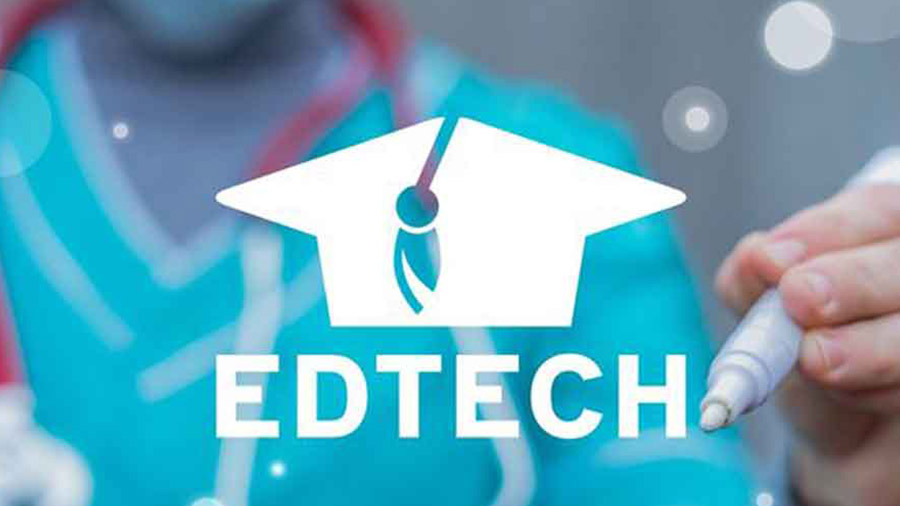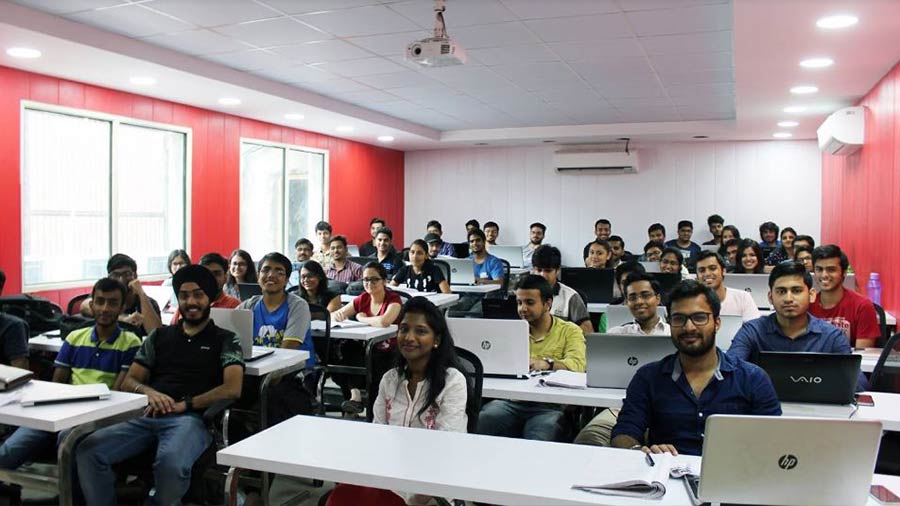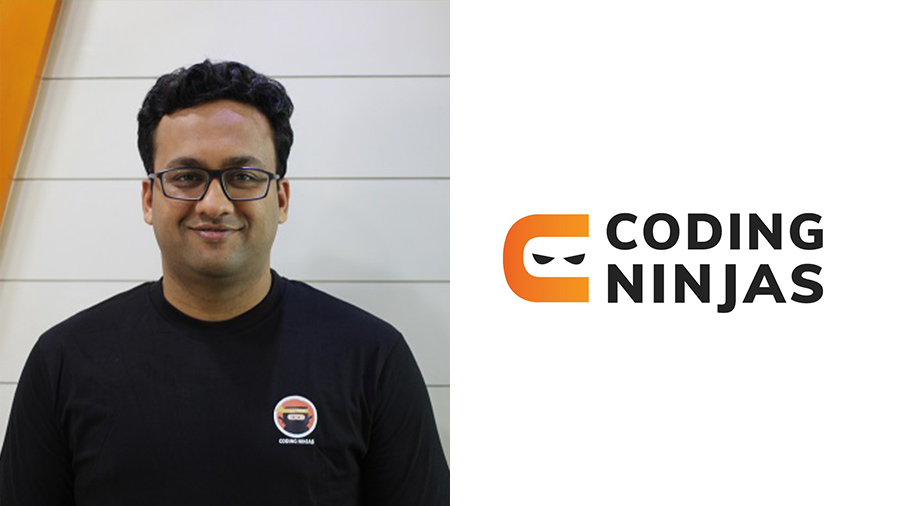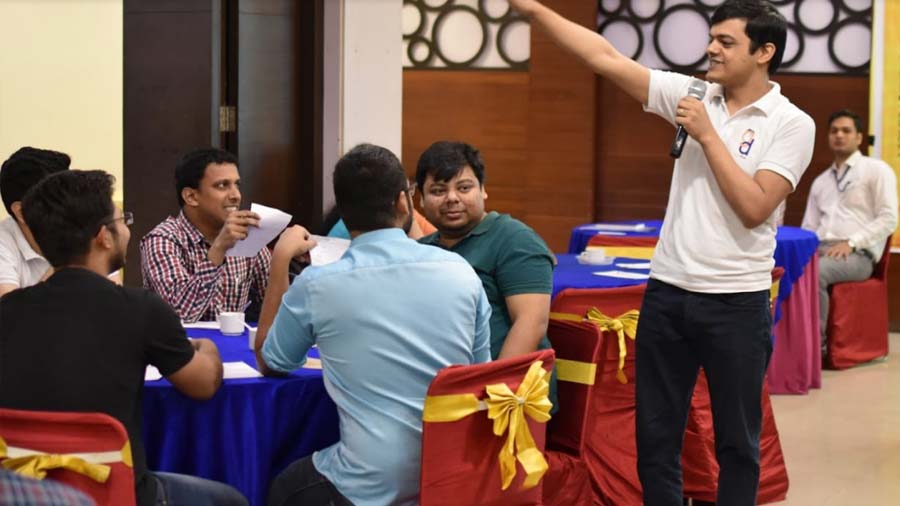“We don’t obsess over growth but choose to focus wholeheartedly on providing better teaching. After that, it’s our students who take care of our growth,” says Ankush Singla, co-founder of Coding Ninjas, a one-stop platform in an increasingly competitive market.
Stacked with courses across programming languages that are taught by industry experts, sessions at Coding Ninjas work in the form of pre-recorded lectures, with a separate team of teaching assistants handling doubts and queries by students (the team cleared some 100,000 doubts last month alone!). This not only leads to the growth of expert software developers and innovators at companies like Amazon, Google and Facebook, but also fuels the entrepreneurial spirit among young Indians, with more than 100 Coding Ninjas alumni till date going on to start businesses of their own.
My Kolkata caught up with Ankush to decode the rise of Coding Ninjas.
Aim was to bridge the gap between jobs and candidates
My Kolkata: Tell us about the origin story of Coding Ninjas. When did it start and how?
Ankush Singla: We started Coding Ninjas in 2016, with the aim of bridging the gap between jobs and candidates. We had seen for years how students were struggling to find jobs because they didn’t know how to prepare for them or what sort of skills they needed to be employable. Companies were also struggling because the success ratio in terms of the number of people interviewed to the number of people hired was extremely low. Coding Ninjas began with the objective of fixing this situation. Initially, we started our courses offline, in a small centre in Delhi. But we knew that to scale, we had to take things online, because we couldn’t find hundreds of quality teachers offline. Within a year or so of operating offline, we knew what to do to make things work online in terms of the right content and the right methodology. We were satisfied with our product and made it available online, where the uptake was immediate. Then in around August 2019 we closed down our offline operations and went completely online.
Foundation courses on data structure and algorithm are the most popular
Among the different courses available at Coding Ninjas, which are the most popular?
Over the years, our major audience has been college students, though this year it’s getting 50-50 in terms of college students and professionals. Generally, we are a student’s first coding teaching partner and they start their coding learning journey with us. Most of the people enrolling for our courses start with the basics – the data structure and algorithm courses on the fundamentals of programming languages like JAVA and C++. So, our foundation courses naturally become the most popular ones. The second most popular courses are the ones to do with web development, where people learn how to build websites. That’s where most of the jobs are. Thereafter we have courses that go into data science, machine learning and so on.
Net course purchases from West Bengal rose from four to 5.5 per cent in the last year

Delhi Technological University is among the highest represented institutions in Coding Ninjas’ student pool Delhi Technological University
Which parts of India do you get most of your students from? Could you give us any specific data and/or insights about students from Kolkata/West Bengal?
Since we started off in Delhi, we’ve always had a heavy presence there. For instance, the top two BTech colleges in Delhi after IIT Delhi are Netaji Subhas University of Technology (NSIT) and Delhi Technological University (DTU), and we teach 600 people every year from these two colleges. This year we’re teaching about 60,000 students in total, spread all across India. Most of them are based in North India, with Uttar Pradesh, Punjab, Haryana and Delhi forming the lionshare. We also have a lot of students from Maharashtra, which regularly ranks among the top two or three states for us. When it comes to professionals, they mostly come to us from tier-1 cities in India.
As for West Bengal, four per cent of our net course purchases came from students and professionals based in the state in 2020-21, which rose to 5.5 per cent in 2021-22. Students from Bengal also constituted six per cent of the total participation pool at the Innovate India Coding Championship, which was hosted in collaboration with the All India Council for Technical Education (AICTE).
Coding is a serious subject that can be as valuable in building a career as mathematics

The NEP could change the perception of coding from a hobby to a serious subject for school students, feels Ankush TT archives
Now that coding has been recognised as an important skill in the National Education Policy (NEP), to what extent will it impact the coding industry and the kind of work Coding Ninjas does?
To understand this, we have to understand the three kinds of people who want to take up coding. First, there are the working professionals who learn coding to upskill and look for a better job. The inclusion of coding in NEP hardly has any impact on them. Then come the college students, most of whom will anyway be learning coding because of the nature of their degrees. Again, the impact of NEP inclusion will be negligible. But then there’s the third group, which constitutes school students, those who take up coding as a hobby, much like swimming or guitar lessons. Most kids do this after getting done with their JEEs, but some might start as early as Class X or XI. It is for these kids, and more pertinently, their parents that NEP inclusion can make a difference. The difference being that coding isn’t just another hobby that a youngster should learn, it’s a serious subject that can be as valuable in building a career as mathematics.
Now that schools are back with physical classes, the K-12 startups have taken a big hit

K-12 startups grew significantly during the pandemic, unlike those involved in upskilling professionals TT archives
According to data shared by Coding Ninjas, there has been a trend of decline among ed-tech startups in 2022. How sharp is this decline and why?
Ed-tech startups are mostly of two kinds. There are those that are concerned with teaching students between kindergarten and Class XII in what’s known as the K-12 model and then there are those that are concerned with professional upskilling. Covid-19 really helped K-12 startups because all of a sudden all learning was online for almost two years and parents didn’t want their kids to miss out while being cooped up at home. This meant that K-12 startups grew phenomenally during the pandemic, while those dealing with professional upskilling didn’t experience anything similar. But now that the pandemic has receded and schools are back in session with physical classes, the K-12 startups have taken a big hit. The scale at which they were operating during the pandemic is no longer possible, which means they’re having to cut down, adapt and change their marketing and financial strategies. This explains the decline of ed-tech startups this year, although that decline hasn’t affected upskilling startups like Coding Ninjas, which have continued to grow steadily.
If you know your coding and are willing to work hard, it doesn’t matter what your educational or family background is

Ankush predicts a lot more jobs in IT and software development in the near future TT archives
Looking at the larger picture, what are the biggest problems when it comes to skilling urban and rural youth in India today? How can coding address this problem, especially in the IT sector?
There’s no doubt that Covid has made us more digital, with a far greater reliance on technology than before. Companies are constantly looking to expand their tech quotient as well. This is going to lead to a lot more jobs in IT and software development in the near future. To secure these jobs, people need to learn coding and upskill themselves. But this kind of upskilling can’t happen offline on college campuses. Why not? Because most colleges can’t bring together hundreds of teachers who are the best at what they do, with the logic being that if they were so good at coding, they wouldn’t be teaching. Because the money in teaching on campus is nowhere close to what it can be in the top jobs reserved for excellent coders. This is where companies like Coding Ninjas come in with our online programmes led by world-class teachers, who can upskill India’s youth and prepare them for today’s evolving job market. The other thing about IT in India is that it’s a largely democratic industry, in the sense that if you know your coding and are willing to work hard, it doesn’t matter what your educational or family background is. You’re more likely than not to get a well-paying job.
There is a persistent narrative that coding is only for people interested in tech; how can coding help those who do not have a tech-based job?
In today’s times, coding can help everyone. No matter what job you do, coding can help you upskill and stay one step ahead. We’re all living in a data-centric world, which makes coding indispensable. If you’re from a non-tech background, you don’t have to go into hardcore software development. You can just get into basic data analytics, with a bit of knowledge of programmes like Python. The results will be clear, as you’ll be able to work faster and more efficiently. Basic coding isn’t very hard to learn, doesn’t involve hardcore math, but is bound to serve you for a long period.

Coding Ninjas wants to create a comprehensive support system for recruiters and coders in the long-term Coding Ninjas
Where do you see Coding Ninjas in five years’ time?
Right now, we’re doing quite well with respect to college students, so our short-term goals are oriented towards amplifying our reach among professionals looking to upskill. Long-term, we want to create a comprehensive support system for both recruiters and coders wherein they can find each other much more seamlessly. We want to make coding a natural component of the skillset that you need to thrive as a professional, and not something that you do only because you’re interested in it or that it leads you to a particular kind of employment.


